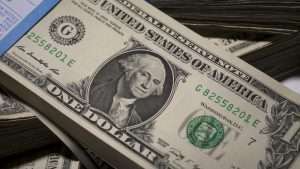
The Dollar recovered from its decline against the Euro with a lift from positive jobs data on Thursday.
The Japanese yen, considered safe haven currency, lost a little of its recent gains back to the dollar, as market risk appetite improves on the return of Joe Biden in the Democratic Party.
High U.S. labor-market data overnight and better-than-expected February private payrolls helped the dollar gain 0.3% higher, at 1.137 against the Euro.
The Dollar last traded at 107.61 against the Yen. On Tuesday, the Fed implemented a surprise 50 basis point rate cut that caused the Dollar to slip to a five-month low of 106.84 yen.
The New Zealand and Australian Dollars, which gained momentum amid the outbreak, began steadying against the Dollar.
The Australian Dollar stood at $0.6621, after gaining almost 3% last week from an 11-year low. The New Zealand Dollar sat at $0.6291, after a near-2% increase.
The Treasury Department of Australia said that it is not yet forecasting a recession however, the impact of the coronavirus could cause the first quarter growth to lose half a percentage point.
The Canadian Dollar stood lower than the USD after the Bank of Canada issued its deepest rate cut in more than a decade. The CAD last stood at $1.3390.
The British Pound gained against the dollar and euro after the incoming governor of Bank of England said that he would wait for clear news regarding the virus rather than hastily cut interest rates.
The Pound last stood at 1.2871 against the Dollar and at 86.55 pence per Euro.